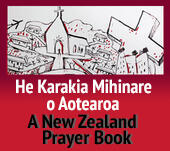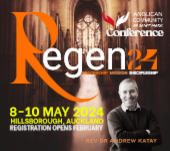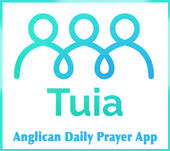One of the things I most enjoy about living in New Zealand is the Kiwi sense of humour. It’s dry and it’s understated, but it gets the point across.
I’ve particularly appreciated some of the one-liners that have been doing the rounds since the earthquake. How do you know you live in Christchurch? they ask.
Well, you know you live in Christchurch when you put your dirty clothes on the washing line to get them clean in the rain.
You know you live in Christchurch when a bunch of students turn up at your place and leave it in a better state than they found it.
You know you live in Christchurch when you don’t have to stir your coffee.
And my favourite – you know you live in Christchurch when you take a plastic bag with you when you go for a walk – even if you don’t have a dog.
This is the humour of the new normal, and it helps us cope when almost everything else is sliding out of our control. Many of the things we took have granted have gone.
Getting to work now takes me more than an hour on gridlocked roads full of unexpected hillocks and dips and traffic cones emerging from nowhere and disappearing again. The streets are full of agitated motorists trying to get somewhere fast the convoluted way.
It’s like being let loose on the roads in a full-size set of dodgems.
In my part of town, the exodus begins at 6 o’clock as people go off to wash in another suburb, or disappear with a bag of dirty laundry to impose on friends. When people talk to each other in the eastern suburbs, we keep a foot or two more distance than usual. We’re not being unfriendly – we’re just not certain exactly how much we smell.
Getting the weekly groceries in a new place can be bewildering. Supermarkets are full of people trying to get their bearings, wandering like lost souls asking each other, with a slightly hopeless air, where they can find basmati rice or a tin of tuna.
But I think worst of all is the times when you forget, when you imagine things are normal again. When I’m driving down the four avenues in traffic barely faster than a crawl, I find myself peering down the blocked roads searching for the cathedral spire.
I know it’s not there. But I look every time. This is about more than being displaced – There are times when the sense of loss is so tangible you can almost taste it. For those who have lost loved ones, it must be unbearable.
So I read the story of Abram in our first lesson this morning with new eyes. You might well call Genesis “The Book of Divine Disappointment.” Everything that God plans from Adam and Eve through to Noah winds up with a spanner in the works. Then enter Abram, who becomes the father of the eternal covenant between God and his people.
Put simply, the covenant is about a group of human beings who agree to share God's dream of building a world where human dignity is real and the presence of God is as near as their very breath. So far, so good.
But look at the cost. God tells Abram: “By the way, for this to happen, you have to up sticks and leave everything you know, everything that’s familiar, and journey into the unknown. I’m not going to tell you exactly where you’re going, yet. Just have a bit of faith.”
I’m not sure there’s a more radical command in the Bible. Give up everything and go toward the place that God will show you. Give up all you’re familiar with – your comfort, your family and friends, all the regularity and the rhythm of the life that you’ve known, and ultimately – here’s the promise: God will bless you and all the nations on the earth through you. The covenant is born in the moment Abraham has the courage to abandon the familiar.
There’s much that this morning’s story misses out.
We don’t hear about how the rest of the family felt about leaving. We don’t find out about the inevitable feelings of loss and bewilderment. We don’t see the clan turn up at an oasis in a strange town only to be ignored or cheated by the locals. We never see inside Abram’s head, to find out if he ever regretted it or thought “Where do I fit in now? ... What do I believe? ... What do I do?"
The story is only sketched out in broad brush strokes and the continual refrain of the promise of God. “I will make your name great ... through your commitment to my call, all families of the earth will be blessed."
As the adrenalin wears off, and we look at the enormity of what lies ahead of us, it’s overwhelming. When we consider what we have to rebuild, and the endless negotiations with insurance companies and mortgage people and government departments it almost seems more than we can handle.
If there is a promise of God in the midst of all this devastation, then I confess I can’t quite make out what it is. But I know as we work through the months and years ahead, however grim it gets, God will be there with us. God has a lot of practice leading people through the unknown.
There are times in the last week when I have curled up in a corner and wept. And there are times when I’ve been so irrationally angry that only the thought of being captured on a cellphone and appearing as a Youtube video has stopped me leaping out of the car and smashing somebody’s windscreen with the New Zealand Prayer Book.
Again and again I find myself asking, Why us? Why here? Why now? But you know, here’s the thing. The religious life doesn’t give us any guarantee of security. There’s nothing in the Christian faith which tells you how to have a easy life.
There’s nothing which will make you well-respected, or loved by your peers, or even get you a decent seat at a dinner party. There’s nothing about being fitter, happier or more productive. There’s nothing in the gospel about our convenience at all.
But we are in the business of salvation. Sometimes people think that salvation means getting your ticket to heaven punched and being home and dry forevermore. It doesn’t. It’s more like unwrapping a present in a game of pass the parcel.
You gradually peel away layer after layer and reveal what’s underneath. It moves forward in fits and starts. The shape of the life beneath the wrappings, the contours of who you are called to become, only reveal themselves very gradually. It’s about constantly being made and remade more and more in the image of Jesus Christ.
Jesus uses dramatic language to talk about faith. Leave your nets, he says. Be born again. Take up your cross.
We sometimes treat them as if they were colourful metaphors for making yourself a bit more uncomfortable, like giving up chocolate for Lent. But they’re really about stripping away our superficial props and burrowing down to the deeper sources of what makes us who we are.
We’re called to move from a heart curved in on itself to a place where we are completely laid open to the love of God, and we can begin to love other people in the same way. It’s not for the fainthearted. It means giving up many of our familiar habits. It takes courage. And it’s a journey that lasts a lifetime.
The Rev Lynda Patterson is Theologian-in-Residence at ChristChurch Cathedral. This sermon was preached at the cathedral service in Fendalton Primary school on Sunday, March 20.

















Comments
Log in or create a user account to comment.